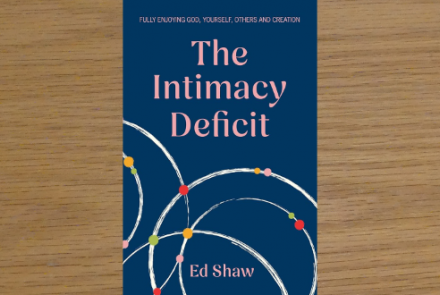Freedom from shame
Shame is no respecter of person. Shame cares little if you develop into someone who goes on to achieve a successful career or into someone who endures a life-long struggle to hold down any form of gainful employment. Shame isn’t interested in how you present to the world; for its kingdom and dominion is within. Shame is the ever-present voice that reminds you of your ‘real’ state, that of being unlovable, unworthy and inherently flawed. Shame is the voice that terrifies you into silence. If people really knew me, you conclude, they would hate and reject me. Shame is the voice that causes you to hide from others and, eventually, even from yourself so that your sense of self is swallowed up in perfectionism, blame-shifting, role-playing and, oftentimes, addictive behaviour.
“Who told you that you were naked?” God asks Adam and Eve in Genesis 3:11. Disobedience, guilt, and then feelings of shame had resulted in our first parents taking cover in nearby shrubbery in a futile attempt to hide from their beloved Father. Shame is one aspect of our natural inheritance that has been handed down throughout the centuries but thankfully, along with everything else that separates us from God, it has been addressed and destroyed by Christ on the cross.
During my childhood and teenage years, feelings of shame far outweighed any other emotion. Encouraged not to show negative sentiments as that was considered to be a sign of weakness, I soon learned to be happy or nothing. In hindsight, therefore, it is not surprising that I experienced depression from a very early age and had my first major episode at the age of ten resulting in long term absence from school. If the option is happy or nothing, I concluded, then I choose nothing. Long before that time I had put labels on my forehead, invisible to others, that read overlooked, uncared for and unloved. They didn’t have to be true statements for them to be real to me.
Gender confusion was present from my toddler days. Although I knew I wasn’t a boy, I found it impossible to relate to or embrace my femaleness. During puberty, in addition to seeing myself as some third gender, I also began to experience same-sex attraction. These persistent desires encouraged a gay-centric identity resulting in three long-term relationships spanning a seven-year period. Interestingly these relationships, despite their intensity, never removed the seemingly ingrained belief that I was unloved and unlovable.
Conversion to Christ interrupted my life. Believing that homosexual behaviour was incongruent with God’s creational intent meant that I no longer spent my energies seeking out potential partners, but in devoting myself to all things Christian. Initially, however, my new-found faith had little bearing on my enduring shame. Even though I knew categorically that God loved me, I could deflect its impact by reasoning that He had to love me. After all, I rationalised, it was in His job description. He has no choice. However, challenging my deep-seated self-beliefs with the truth of God’s Word has always been at the core of my Christian journey and tackling the topic of shame has been no different.
If I told you it has been a wonderful waltz from one level of glory onto the next, it would be to offer a bare-faced lie. Over the years in exposing the long-term lies I believed and internalised, God stripped me of the fig-leaves that I once clung onto and left me exposed, vulnerable and in need. All the feelings that I had either dodged or covered over were now laid bare. It was then, whilst crumpled in that unprotected place, I experienced the weight of God’s own garment of righteousness.
Jesus states quite simply, “If you hold to my teaching, you are really my disciples. Then you will know the truth, and the truth will set you free” (John 8:31b-32).
By living in my identity as God intends, that is living within His framework of truth and in the liberty offered by His grace, I can respond to Him more fully. I have the opportunity, whatever the immediate or ongoing challenge, to experience the abundance of life that Jesus offers in John 10:10. This is true for all believers. Shame tells you that you are inherently worthless and irredeemably defective, but God tells you that you are made in His image (Genesis 1:27) and are fearfully and wonderfully made (Psalm 139:14).
Although shame is no respecter of person, our dear Lord Jesus holds us in the highest of esteem. Paul writes that “In Him we might become the righteousness of God” (2 Corinthians 5:21b). Removing the core of shame does not bring automatic release from our struggles, but does allow Truth to infiltrate and challenge that which keeps us from experiencing the abundant life.
This article was first published in the Winter 2017 version of Ascend magazine






